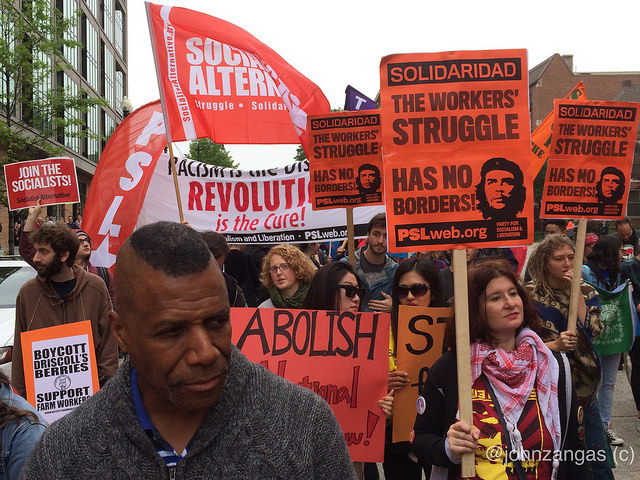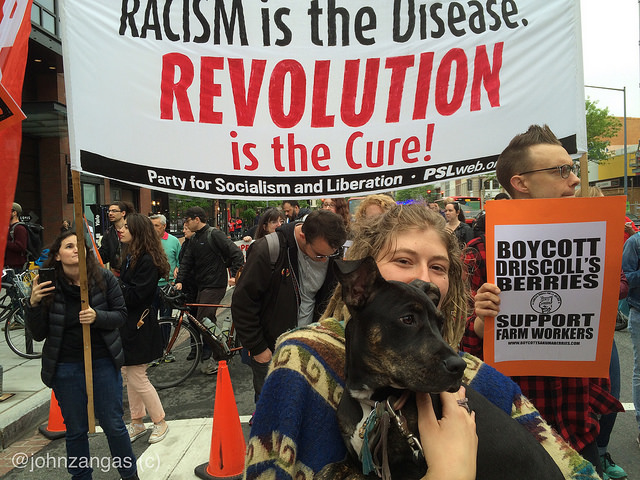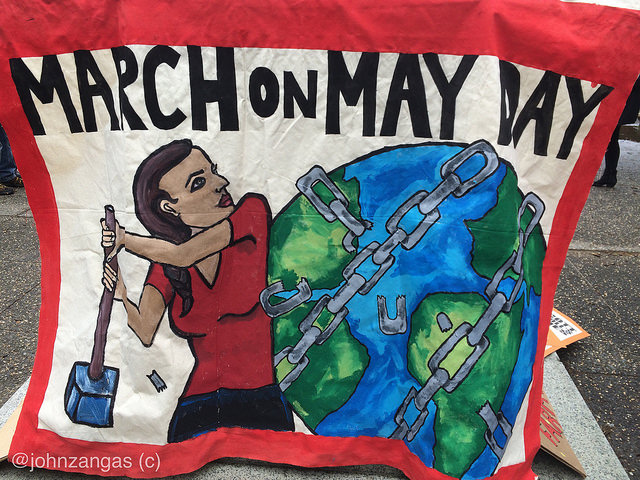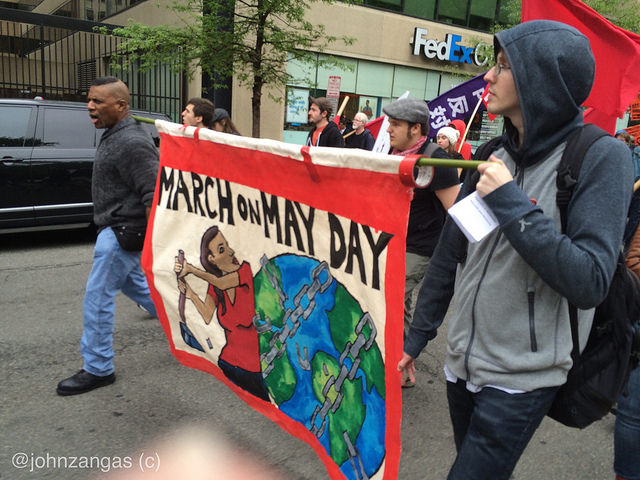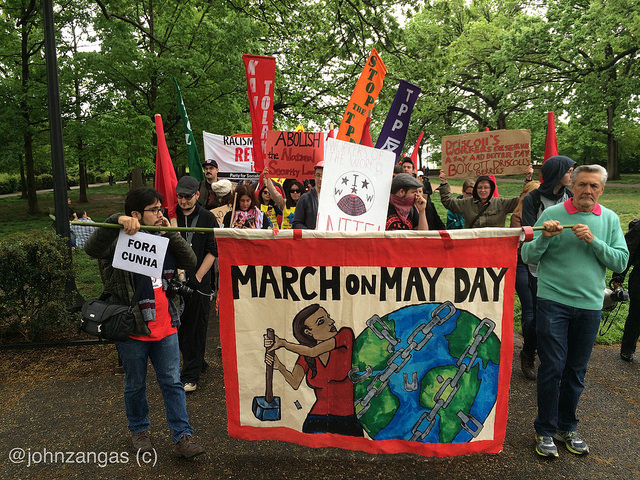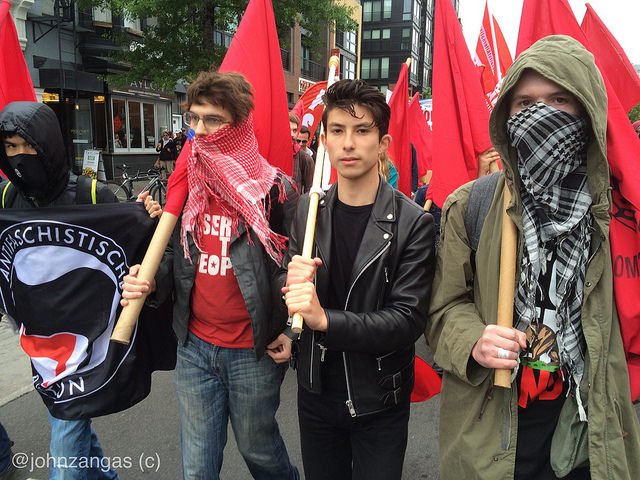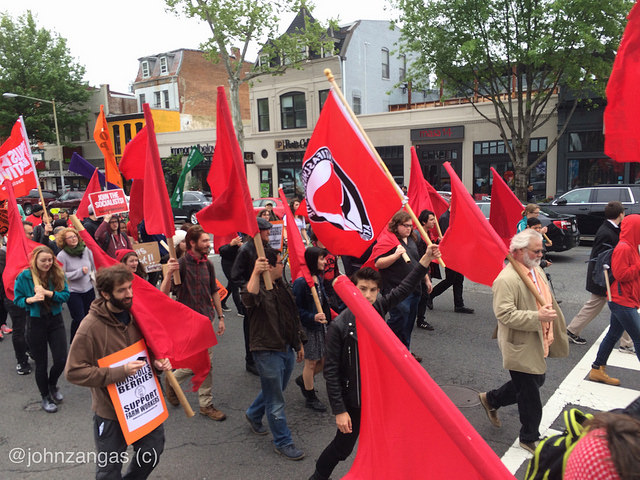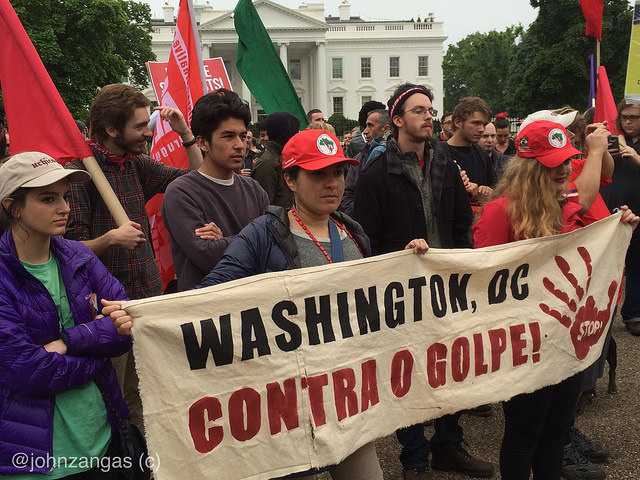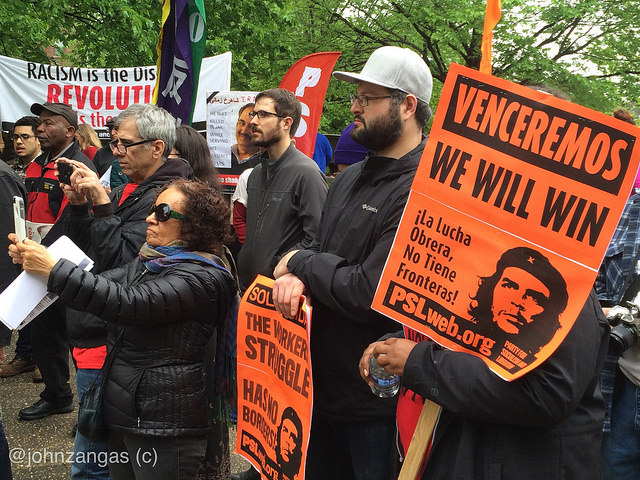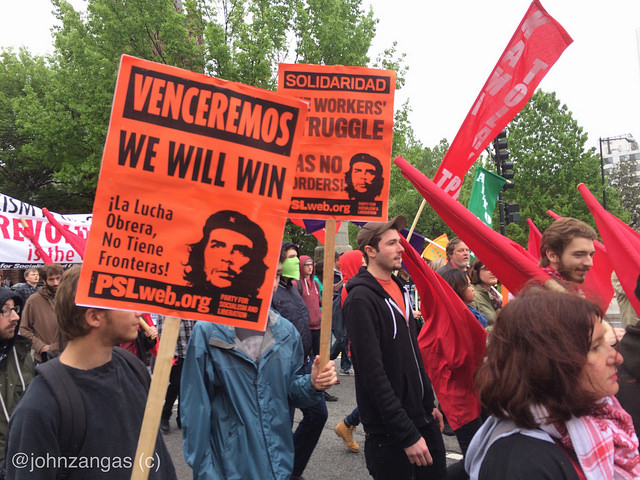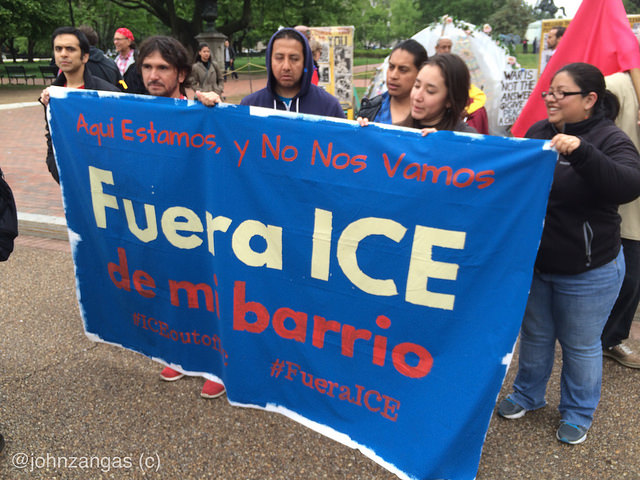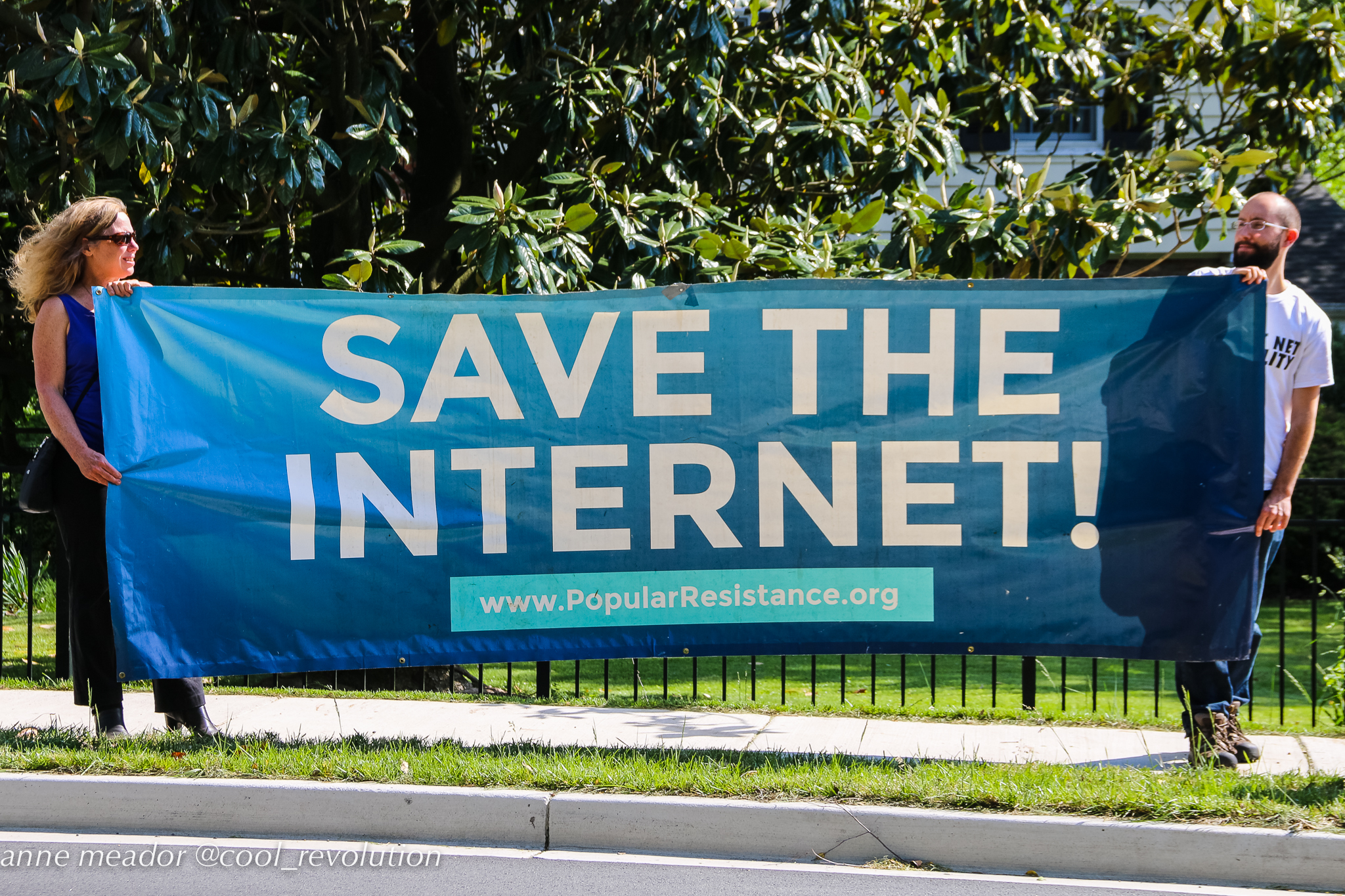Washington, DC – A spectrum of workers’ rights groups rallied for the annual May Day March for labor on Sunday, May 1. They called on workers to organize with a new militancy and mobilize against global economic disadvantages posed by the growing power of corporate elites. They were also joined by labor groups visiting from South Korea, Turkey, and Brazil.
Speakers highlighted key issues facing labor, including the Trans Pacific Partnership (TPP), loss of workplace and immigrant workers’ rights in developing countries, and economic disadvantages of minorities and women.
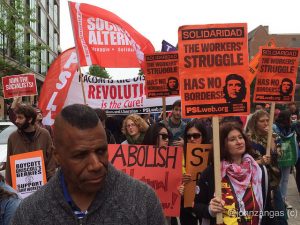 They linked several key issues as necessary to restore labor to minimum standards of living, including increasing the minimum wage to $15 per hour, making affordable family medical benefits available to all workers, establishing rights of immigrant families to remain in the U.S., and reaching parity between women’s and men’s wages.
They linked several key issues as necessary to restore labor to minimum standards of living, including increasing the minimum wage to $15 per hour, making affordable family medical benefits available to all workers, establishing rights of immigrant families to remain in the U.S., and reaching parity between women’s and men’s wages.
Some speakers highlighted the history of May Day, also known as International Workers Day, and how laborers are still encountering the same economic pressures as generations past.
Luisa Galvano, an organizer with Brazilian Expats For Democracy, said that issues facing workers are global. She highlighted social programs in Brazil, such as education and housing, which are under assault by right wing political forces there. “What we are seeing is a class war because the workers’ party has invested a lot in its social policies over the last 12 years, and what we’re seeing is a right-wing backlash against these positive social investments,” she said.
Galvano is also concerned that right-wing efforts to privatize public services are harmful to working families. “What we’re seeing is an attempt to privatize everything,” she said.
“Today is a day to honor labor,” said Salvador Sarmiento, a human rights lawyer with Cosita, who works for immigrant rights. “Today we are celebrating with people from across the world,” he said.
Sarmiento said that immigrant day laborers and workers, who are struggling to put food on their tables, were being separated from their families. “Over three million have been deported in the last eight years,” he said. “We will no longer let them separate us,” he said. Presently there are over 20 million immigrant workers, many of them refugees, working to become naturalized, according to Sarmiento.
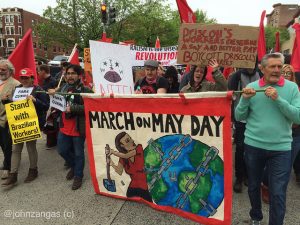 Dr. Margaret Flowers, a pediatrician and co-founder of Popular Resistance, spoke about free trade agreements such as the Trans Pacific Partnership (TPP). “We have growing poverty. More than 50% of workers make less than $30,000 a year and more than 40% have no benefits,” she said.
Dr. Margaret Flowers, a pediatrician and co-founder of Popular Resistance, spoke about free trade agreements such as the Trans Pacific Partnership (TPP). “We have growing poverty. More than 50% of workers make less than $30,000 a year and more than 40% have no benefits,” she said.
The TPP trade agreement will make conditions for labor and working families even worse, according to Flowers. “It’s really critical for us to stop it, because it’s going to drive a global race to the bottom in workers’ rights and wages,” she said.
Flowers is helping organize a weeklong protest in November, when Congress is expected to vote on the TPP. Called the #NoLameDuck Uprising, the protest will mobilize workers against the trade agreement.
The TPP was signed by the leaders of 12 countries but has yet to be ratified by any of their legislatures. If it is approved, it will affect 40% of world commerce.
According to the Electronic Frontier Foundation, the TPP, which was negotiated in secret, will result in huge giveaways to multinational corporations and create parallel corporate tribunals.
Following the speeches, about 200 people marched from Malcolm X Park (Meridian Hill) to the White House.

